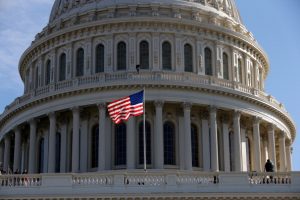
When Donald Trump issued an exec order that might endanger the firm’s ability to do business, Paul Weiss waved away the alternative of testing the illegal act of revenge in court and rather promised $ 40 million in cost-free lawful solutions. Eventually, 8 other firms joined in with bigger pro bono bargains. In feedback to legal questions, the companies affirmed that these services would just go toward some slightly defined philanthropic causes , even while the Trump administration itself boasted that it would be able to call upon the companies to job directly for the federal government completely free
Back in August, it appeared that a minimum of 2 of the firms, Paul Weiss and Kirkland, were doing free lawful work for the Commerce Department This type of direct contradiction of the companies’ earlier representations seemed to bound to rub legislators the upside-down. Yet a retired expert connected to us the following day to flag Section 1342 of Title 31 , referred to as the Antideficiency Act, which disallows the federal government from accepting volunteer services beyond situations “emergencies entailing the security of human life or the protection of residential or commercial property.”
Because working out a profession deal doesn’t bring life-and-death stakes– at the very least not “imminently,” as the statutory text calls for– this looked like an issue.
Obviously, individuals in Congress concurred According to the New York City Times, the companies received letters on expensive Capitol Hillside letterhead today:
The top Democrats stated in the letters to the firms that “as you are definitely conscious, offering legal solutions to the Business Division without compensation may breach the regulation.” The letters cited the Antideficiency Act, which “restricts the government from approving volunteer services and has actually limited exceptions in order to guarantee the government is not on the hook for economic obligations Congress has not explicitly appropriated.”
“Certainly” offers a lot of sarcastic structural support. What’s worse for the firms in this circumstance? It’s possible the firms truly didn’t know about this statute– it’s not a law that generates a lot of action– yet do they want to confess that they never ever troubled to check if this plan was even legal? An unpleasant admission, yet better than having to explain that they were knowledgeable about the law and did it anyhow.
Neither firm responded to the Times when asked for comment, so they’re possibly mulling over this specific Scylla and Charybdis of pleading lack of knowledge or complicity. And intending to create a not-immediately-apparent 3rd remedy.
Technically, the stakes are low for the firms. It’s the management that’s in fact breaking the law below– the statute bars approving the services, not providing them. And the penalties aren’t all that onerous either.
That said, the responses the companies provide could embarrass the administration and offered exactly how it’s reacted to previous regarded disdains, placing the wrong foot onward below might land the companies in even worse difficulty than they thought they dealt with when they offered out in the first place.
Democrats Investigating Law Practice Over Work for Trump’s Business Dept. [New York Times]
Earlier : Paul Weiss & & Kirkland Doing Free Trump Commerce Division Work As Component Of ‘Please Do Not Harmed United States, Father’ Offers
Trump’s Biglaw Bootlickers Claim Peaceful Dismantle Loud In Letters To Congress